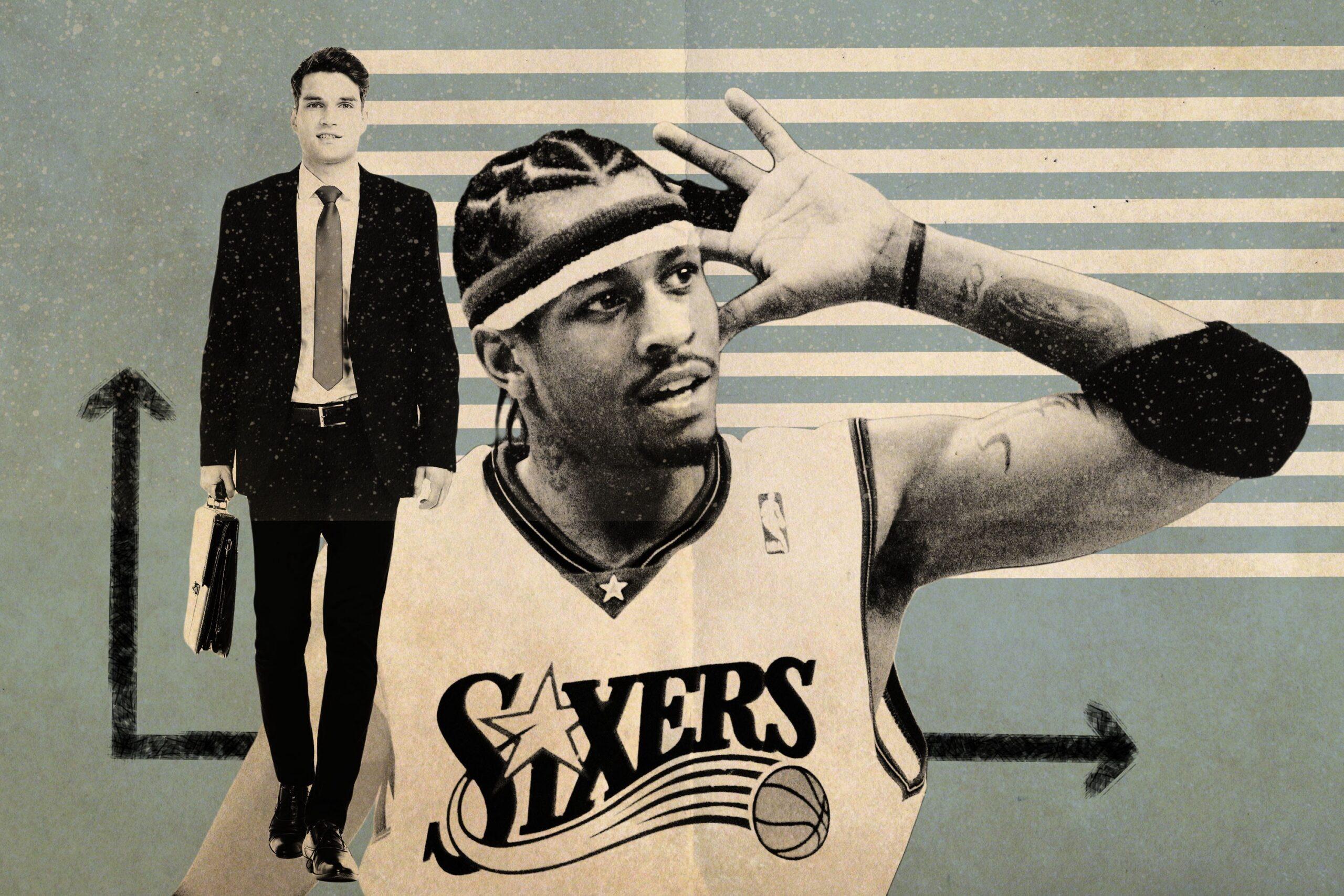
In modern discourse, "efficient" might as well mean "good." The inefficiency of the recent past has quickly become quaint, if not worthy of outright derision.
Remember when Allen Iverson chucked up 25 shots a game, made barely 40 percent of them, and still won MVP? Not in today’s NBA.
Remember when you had to buy a CD player with both a hand strap and a shock absorber if you wanted to even consider listening to something while you exercised? Now you can listen to Alec Baldwin interview the former chair of the Nuclear Regulatory Commission and follow that with a detailed discussion of the effects of dragon procreation on Westerosi politics all within a couple of laps around the track.
And remember when you had to either sit down at a specified hour or stuff a blank tape into your VCR if you wanted to watch Kelsey Grammer offer relationship advice to the Seattle-Tacoma area? Now you can start, stop, fast-forward, and finish the entirety of Frasier in a single weekend.
The analytics revolution in basketball birthed a golden era of spaced-out, fast-paced, high-scoring hoops, and it gave us the Golden State Warriors — arguably the greatest team of all time. Your iPhone lets you listen to podcasts at two-times speed while you pay your half of the rent, check in on the president’s anxieties, send a work email, call a handyman to put up a bookshelf, and get paid to drive your own car. And with on-demand entertainment, television now fits within your life, rather than you having to fit your life around it.
Efficiency is a virtue — as long as we remember that it’s just that and nothing more. Like anything, efficiency is best enjoyed in moderation. Too bad, then, that of the many values of the modern world, moderation is not one of them.

Our brains aren’t built to multitask, but your iPhone has a capital-M multitasking feature built into its software. We’re meant to focus on one thing at a time, but switching from Twitter to Instagram to iMessage to Gmail and inevitably back to Twitter — that back-and-forth raises levels of the hormone coristol in our brains, which then stresses us out and makes us anxious. On top of that, every time you refresh any of your social media feeds, the brief burst of news or images gives you a quick dopamine hit, which leaves your brain wanting more. It’s a destructive cycle: You can’t stop checking Twitter, even though it wipes you out.
The device in your pocket isn’t the only way you’ve been affected by efficiency creep. Back in the early 20th century, theorist and so-called efficiency expert Frederick Taylor made the first attempts at streamlining the then-modern office by introducing various crude methods of employee oversight, including using stopwatches to measure the speed of workers’ in-office movements. Today Amazon is monitoring warehouse workers’ hourly box-packing performance and encouraging employees to send anonymous tips about their coworkers’ bad habits. Amazon CEO Jeff Bezos is the once-and-likely-future richest man in the world, and American workers are more productive per capita than their counterparts in any other big nation. Getting your inbox to zero has become a badge of honor, and Getting Things Done is now a way of life. But to what end? Americans spend more time working than doing anything else. Our country doesn’t require paid maternity leave, paid time off, or paid sick leave. More than 35 million workers still make less than $10.55 an hour, and plenty of others have been forced to navigate the guarantee-free and benefit-less world of the gig economy. The difficulties of the modern economy have created enough demand for a website called Lifehacker to flourish.
Efficiency is the guiding principle of American working life. Depending on your politics, you might also say that prizing efficiency over all else is what’s led us to the anchor-less madness that is daily life in 2017. And although sports still get positioned as an escape from everything else, stadiums are not a vacuum. What happens in an arena isn’t immune to the deleterious effects of efficiency overload, either.
In basketball, there’s no more room for Iverson, the tiny, whip-quick wisp of a one-man team whose crossovers rewrote the context of the NBA even though he was always destined to fail. (To succeed and be inefficient in today’s league, you have to have the body of a superhero — but even that’s up for debate.) In baseball, it’s the march toward three true outcomes: strikeouts, home runs, and walks. What happens to the leaguewide player profile when the ability to smash a ball 400 feet gets valued over all else? In the NFL, it’s an increased emphasis on short passes and completion percentage. Will the sport’s most exciting play — the deep ball — eventually disappear? And in soccer, teams now try to create as many shots within 12 yards of the goalmouth as possible. Will we never get another moment like this?
Welcome to Inefficiency Week. Over the next five days, we’re going to take a look at what we lose when we get lost in the chase for efficiency. We’ll explore the ways it’s changing the games we love to watch. We’ll remember its failures across the pop culture spectrum. And we’ll report on what it’s doing to our lives — romantic, physical, and otherwise.
But please, read along at your leisure. Former Democratic presidential candidate Hubert Humphrey used to talk about how the word "efficiency" is not in the Bible. That’s because it’s not a religion; it’s a temporary way of being. So go wander around and cultivate some boredom; it’s good for you. And once you’ve had enough of having nothing else to do, check out the links below and read away. Your brain might tell you otherwise, but we’re not going anywhere.